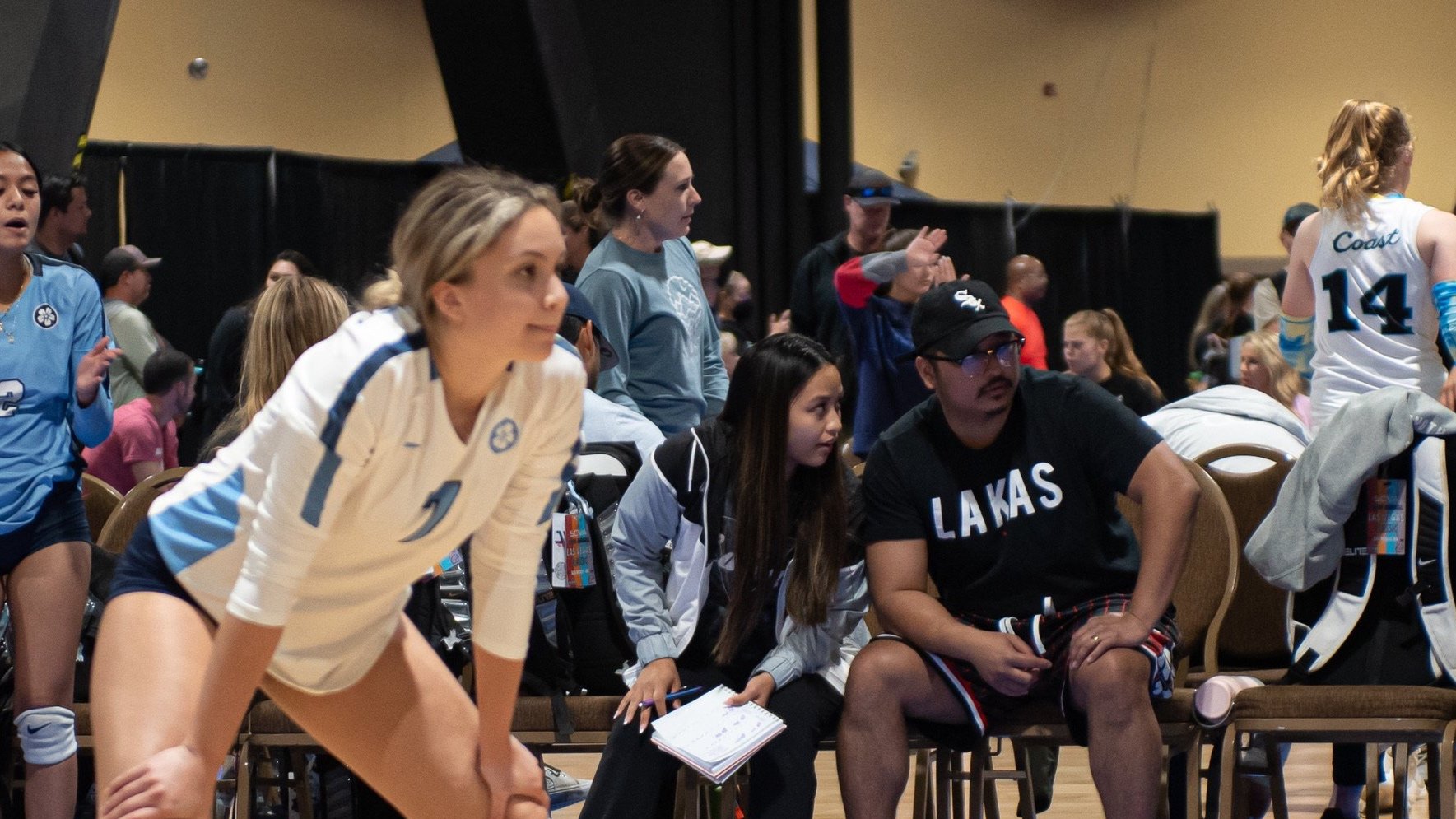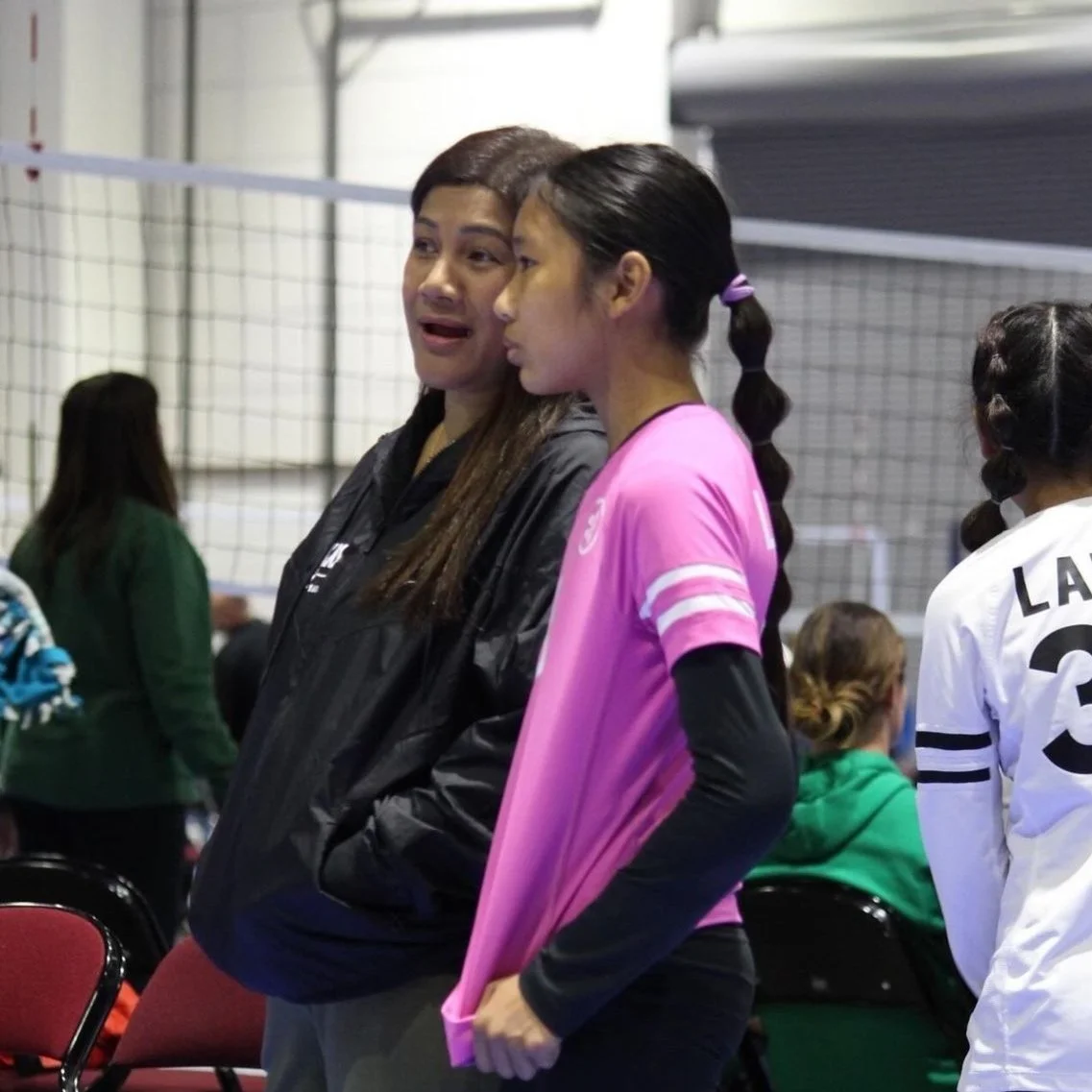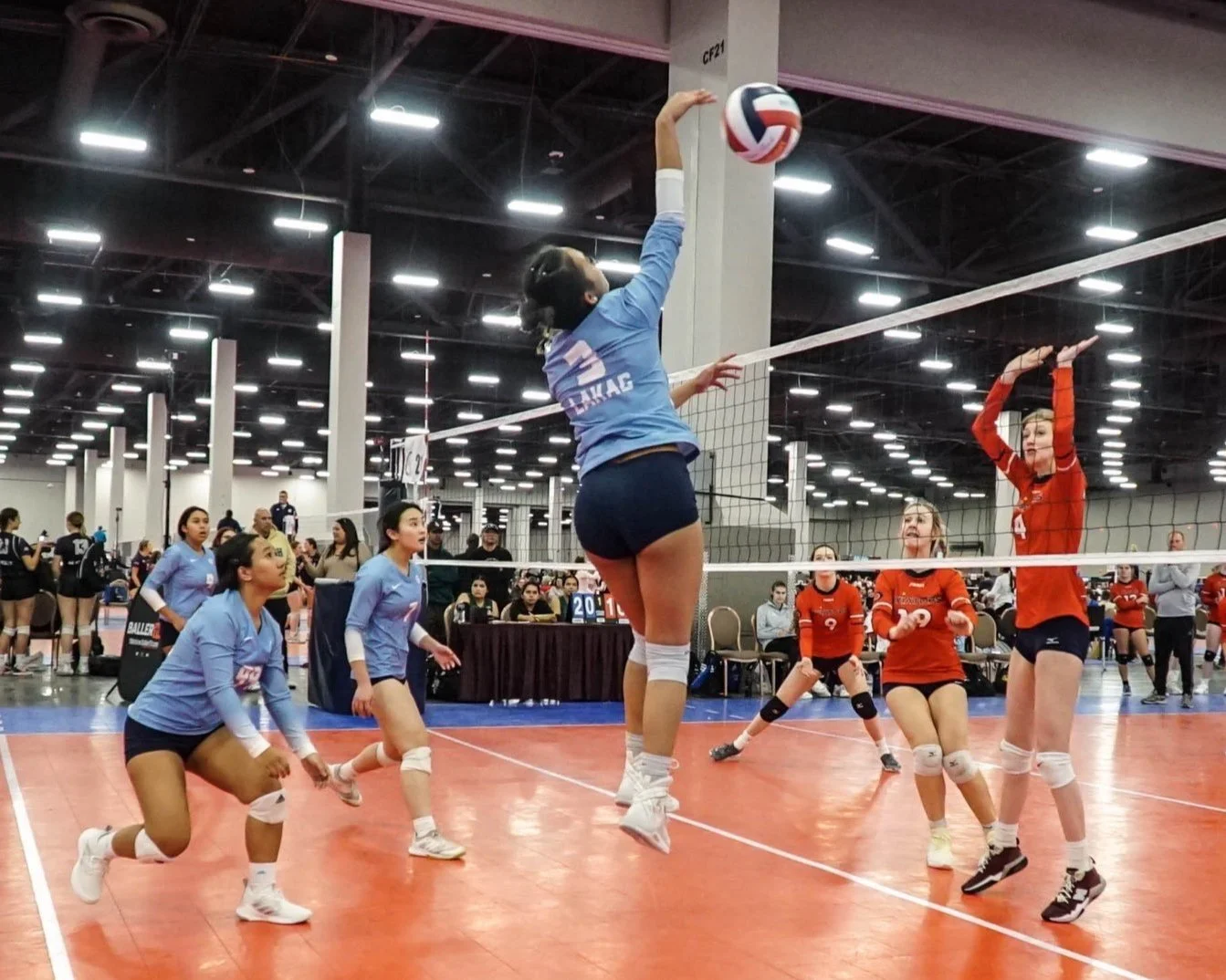
LAKAS (lah-kahs) ᜎᜃᜐ᜔
Lakas, in the TAGALOG/FILIPINO language means “STRENGTH”
The word not only illustrates the definition of strength but demonstrates the importance of togetherness; strength in unity.
LEARN MORE ABOUT LAKAS VOLLEYBALL
-
Lakas Volleyball, established in 2011 in Union City, California, was founded by Jerico Abanico, a former volleyball coach at James Logan High School (JLHS). The club initially aimed to establish a volleyball presence within James Logan High School and to prepare its athletes for their high school seasons. However, the club's mission quickly evolved to include a broader vision: to provide a competitive and enriching volleyball experience to athletes from across the region.
Lakas Volleyball expanded its reach beyond JLHS, welcoming high school and middle school athletes from all over the Bay Area. As volleyball's popularity surged, the club became a magnet for young athletes eager to hone their skills, compete at a high level, and foster a love for the sport.
Lakas Volleyball prides itself on creating a supportive and challenging environment where athletes can develop their technical abilities, tactical understanding, and physical fitness. The club's comprehensive training programs are designed to enhance player performance, build teamwork, and instill a sense of discipline and sportsmanship.
Through various local and regional tournaments, Lakas Volleyball offers its athletes ample opportunities to compete against other top-tier clubs, providing valuable competitive experience and exposure. The club's commitment to excellence and player development has made it a respected name in the Bay Area volleyball community, helping many of its athletes achieve success in their high school seasons and beyond.
-
Lakas Volleyball boasts a diverse and highly qualified coaching staff, bringing a wealth of experience and expertise to the club. Each coach is USA Volleyball certified and has undergone rigorous screening processes to ensure the highest standards of safety and professionalism. Additionally, all coaches hold IMPACT certification, reflecting their commitment to effective coaching practices and player development.
The coaching team at Lakas Volleyball comprises a mix of former and current athletes and volleyball coaches who have excelled at both the high school and collegiate levels. Many of these coaches have also played at the club level, providing them with firsthand knowledge of the competitive landscape and the nuances of the sport. This blend of experiences enriches the training environment, as coaches draw from their diverse backgrounds to offer comprehensive and nuanced instruction.
By combining their extensive experience with a genuine dedication to player development, the coaches at Lakas Volleyball create a supportive and challenging environment that encourages growth, resilience, and excellence in every athlete.
-
Lakas Volleyball Club's mission is to provide young athletes with a comprehensive and enriching volleyball experience, where they can learn, grow, and develop their skills in the sport. Through competitive, individual, and team training, the club aims to foster a deep understanding and appreciation of volleyball while cultivating personal growth and development.
The name "Lakas," which means "strength" in Filipino, embodies the club's core philosophy. Lakas Volleyball Club strives to evoke this spirit of strength in every aspect of its athletes' journey. This strength is not only physical but also mental and emotional, reflecting resilience, determination, and a positive attitude both on and off the court.
At the heart of Lakas Volleyball Club's mission is the commitment to developing the whole person, not just the athlete. The club recognizes that sports can play a crucial role in shaping character, building confidence, and instilling values such as discipline, teamwork, and perseverance. Therefore, Lakas Volleyball focuses on nurturing these qualities alongside athletic skills, aiming to prepare its athletes for success in all areas of life.
Through a combination of rigorous training programs, competitive opportunities, and a supportive community, Lakas Volleyball provides a platform for young athletes to excel. The club's training programs are designed to be both challenging and engaging, tailored to meet the unique needs and goals of each athlete. This individualized approach ensures that players receive the attention and guidance necessary to maximize their potential.
Competitive play is a cornerstone of the Lakas Volleyball experience. The club participates in various local and regional tournaments, offering athletes the chance to test their skills against other top-tier teams. These competitive experiences are invaluable for growth, providing real-world scenarios where athletes can apply their training, learn from their experiences, and gain confidence.
Lakas Volleyball Club also places a strong emphasis on team dynamics and camaraderie. By fostering a sense of community and belonging, the club encourages athletes to support one another, build lasting friendships, and develop a sense of pride and responsibility towards their team. This team-oriented approach helps athletes understand the importance of collaboration and communication, essential skills both on the court and in everyday life.
Ultimately, Lakas Volleyball Club is dedicated to creating a positive and transformative experience for its athletes. By blending high-level volleyball training with personal development, the club aims to shape well-rounded individuals who are strong, capable, and ready to face the challenges of the future. Through the spirit of "Lakas," the club inspires its athletes to pursue excellence, embrace strength, and become the best versions of themselves.
THE “KA” SYMBOL
The Baybayin "ka" symbol, often mistaken for a swirly version of the letter "i," is a character from the ancient Baybayin script used by native Filipinos before Spanish colonization. This script is a pre-colonial writing system that holds deep cultural and historical significance in the Philippines.
Visual and Symbolic Interpretation
Visually, the "ka" symbol is composed of distinct, flowing strokes that may resemble two rivers with a bridge connecting them. This imagery encapsulates the essence of connection, unity, and bridging gaps, which aligns with the meaning and usage of the root "KA" in the Tagalog (Filipino) language.
Linguistic Significance
The root "KA" is a foundational element in many Tagalog words that denote unity or togetherness. For example:
Kasama means "together" or "companion," highlighting the sense of being united or in the company of others.
Kaibigan translates to "friend," emphasizing a bond of companionship and mutual support.
Kaisa means "as one," reflecting a state of unity and solidarity.
These examples illustrate how the "KA" root forms the basis of words that convey collective harmony and interconnectedness. The consistent use of "KA" in such words underscores its importance in expressing communal relationships and shared experiences in Filipino culture.
The interpretation of the "ka" symbol as two rivers connected by a bridge is a beautiful metaphor for the idea of connection and unity. Rivers often symbolize life, movement, and continuity, while a bridge represents connection, overcoming obstacles, and uniting disparate parts. Together, they embody the concept of bringing people together, fostering understanding, and creating harmony, which are core values reflected in the Tagalog words rooted in "KA."
THE SAMPAGUITA
The Sampaguita, with its delicate white petals and intoxicating fragrance, carries profound symbolic meaning in Filipino culture, weaving together themes of purity, resilience, and national identity.
Symbol of Purity and Humility
The Sampaguita's pristine white blossoms are emblematic of purity and simplicity, virtues deeply revered in Filipino society. This unassuming flower, often found adorning altars and religious icons, reflects the humble and devout nature of the Filipino people, who value modesty and grace.
Resilience and Strength:
Despite its fragile appearance, the Sampaguita is remarkably resilient, thriving in the tropical climate of the Philippines. This resilience mirrors the indomitable spirit of the Filipino people, who endure and overcome adversities with quiet strength and perseverance. The flower's ability to bloom in challenging conditions serves as a metaphor for the nation's history and its people's enduring optimism. As the national flower of the Philippines, the Sampaguita is a potent symbol of national identity and pride. It encapsulates the essence of being Filipino, representing the collective values and aspirations of the nation. The flower's ubiquitous presence in ceremonies, from weddings to state functions, underscores its role as a unifying emblem of Filipino culture and heritage.
Cultural Continuity and Tradition: The tradition of stringing Sampaguita flowers into garlands and leis, a practice passed down through generations, highlights the importance of cultural continuity. These garlands are not only tokens of respect and honor but also reminders of the rich tapestry of Filipino traditions that connect the past with the present.
In essence, the Sampaguita is more than just a flower in the Philippines; it is a symbol of the nation's soul, embodying the values, history, and spirit of the Filipino people. Its delicate beauty and enduring presence in Filipino culture continue to inspire and unite the nation, serving as a timeless emblem of the Philippines' identity and heritage.






